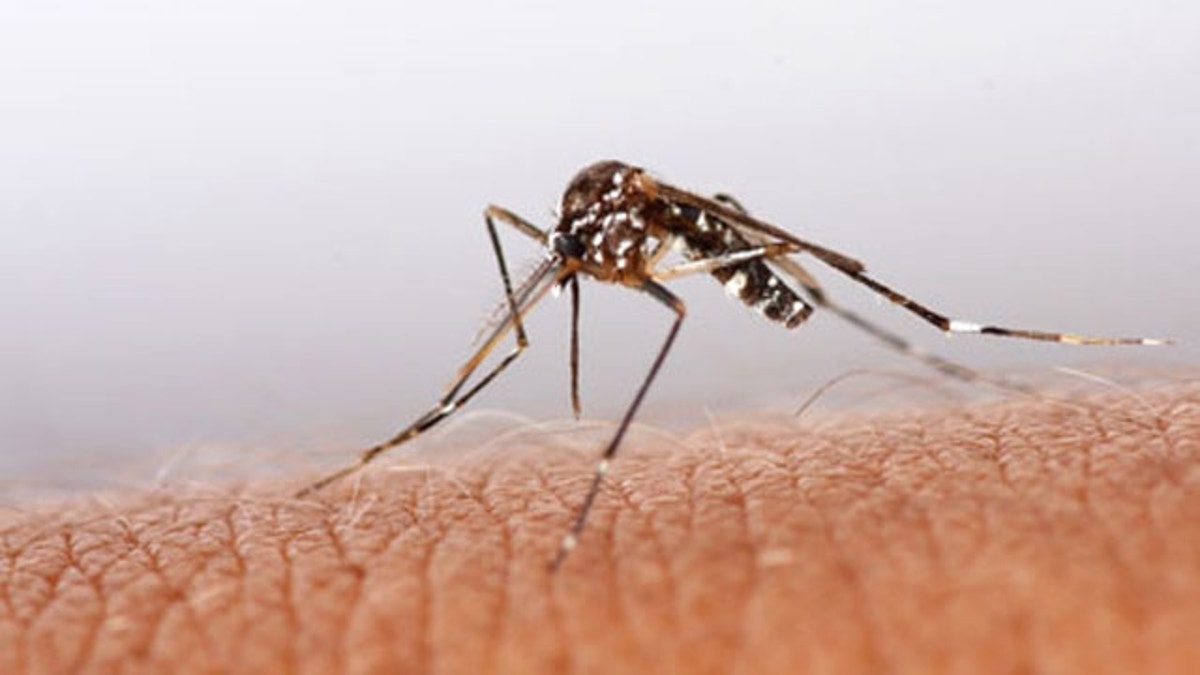
A mosquito capable of carrying deadly yellow fever, dengue and other diseases has been detected in California as vector control agents scramble to control its spread.
The bugs first were detected in the Central Valley communities of Madera and Clovis in June, and were detected again this week in the city of Fresno and in San Mateo County in the Bay Area in August.
They bite during the day, prefer people to animals, and need only a teaspoon of water -- less than in a saucer under a houseplant -- to lay eggs to reproduce.
"If it gets away it will change the way we live in California. You may not be able to sit on your patio and enjoy a cup of coffee during the day without getting bit," said Tim Phillips of the Fresno Mosquito and Vector Control District.
So far none of the mosquitoes trapped within a 2-square-mile infected area of Clovis have carried diseases. But officials warn that if the mosquito called Aedes aegypti bites someone infected with dengue, problems could arise as they have across southern Florida, where dozens of residents have been infected.
The mosquito also has been detected in Texas and Arizona. Dengue is a virus that can cause headache and body pains and a rash similar to measles. Extreme cases can be deadly. Yellow fever is a virus that causes severe flu-like symptoms and sometimes jaundice. It also can kill.
"The nightmare scenarios is it gets established in California and then a mosquito bites someone with an imported case of dengue," Phillips said.
California has had about 200 cases of dengue fever since 2010, all contracted out of the country, said Dr. Vickie Kramer, chief of the vector borne disease section at the California Department of Public Health. She said the chance of disease transmission is low, but the state has warned county health departments statewide to be on the lookout for potential cases, and has asked local agencies to step up trapping.
"Unlike those mosquitoes that carry West Nile Virus and like to bite birds, these like to bite people and will enter homes very readily," Kramer said. "People need to be aware it's here and the medical community should be aware as well."
The yellow fever mosquito adds to problems in the battle against the mosquito-borne West Nile Virus. So far 275 cases have been reported this year.
Scientists at UC Davis and at Yale University are performing genetic testing on the tropical yellow fever mosquitoes to determine their country of origin. Preliminary results show they could be from Central America.
The dark mosquitoes with white markings and banded legs prefer to live near and feed on humans. They lay eggs in small containers just above the waterline. Even after the eggs dry out they can hatch when the container is refilled.
Health officials think this outbreak could have originated from eggs on containers imported into the country.
The Fresno detection came after a resident saw a vector control display last week at the county fair and reported daytime attacks. Likewise in Clovis a resident complained about unusually aggressive mosquitoes.
The mosquitoes have been trapped at around 100 sites in Clovis, where vector control agents are going door-to-door warning residents to empty all standing water. Officials working along with the California Department of Public Health are spraying the insecticide promethean in and around thousands of infested homes.
"It's very difficult to control because of its biology," said Steve Mulligan, who is working on the Clovis outbreak. "They like humans and will come inside the house. We're trying hard to eliminate it."








































